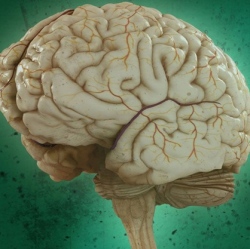
Roughly one out of every 68 children in North America has autism spectrum disorder (ASD), a developmental condition broadly characterized by difficulties in social interaction, problems with communication, and repetitive behaviors. Every ASD diagnosis is a complicated, involved process.
The child, who is often between the ages of two and six, undergoes a battery of behavioral evaluations overseen by trained professionals, usually in a clinical setting. He or she is observed and tested, sometimes for lengthy periods. Diagnoses can be equally extended.
But researchers from Jagiellonian University in Poland and the University of Strathclyde in the United Kingdom have a plan to streamline the process. They aim to diagnose autism with a simple game played on a phone or tablet. In a recent study published to the journal Scientific Reports, they took a significant stride towards reaching that goal.
Prior research has hinted that children diagnosed with ASD demonstrate distinct patterns in motor control, particularly with their hands. With this in mind, authors Anna Anzulewicz, Krzysztof Sobota, and Jonathan T. Delafield-Butt recruited 37 children between the ages of three and six years old and matched them with 45 typically-developing controls of equal age at the same gender ratio.
One-by-one, each child was brought into a room, sat in front of an iPad mini affixed to a table, and instructed to play two basic games for seven minutes each. The duration was split into two minutes of training followed by five minutes of solo play. (Figure below: One game involved sharing a piece of fruit between four characters. The other game involved tracing and coloring different objects.)
In those short and painless moments, the researchers collected heaps of data on the children’s finger movements extracted via inertial sensors and the tablet’s touchscreen. Machine-learning algorithms subsequently examined the data to determine precise motor patterns associated with ASD. Children with autism touched the screen with more impact force and greater pressure compared to controls. They also swiped faster and tapped the screen more quickly.
Utilizing those touch patterns, the algorithm devised diagnostic criteria for autism based on the children’s gameplay. The criteria successfully identified the autistic children with an impressive 93 percent accuracy. The researchers were elated with the results.
"We have shown here that smart tablet technology offers an attractive, new paradigm for clinical autism assessment… enabling engaging, ecological testing of children’s motor behaviour in a fun, accessible format…" they write.
The study is an exciting proof-of-concept, the researchers say, but more work needs to be done. Next, they aim to test their approach on many more subjects in order to refine the algorithm’s diagnostic criteria and eliminate potential confounding variables.
